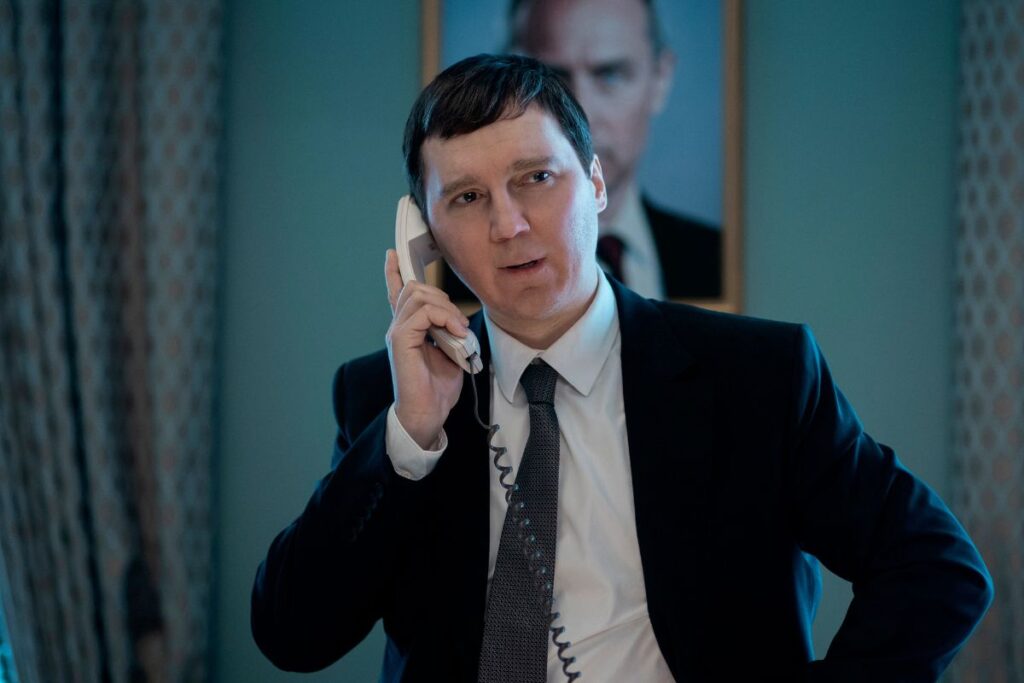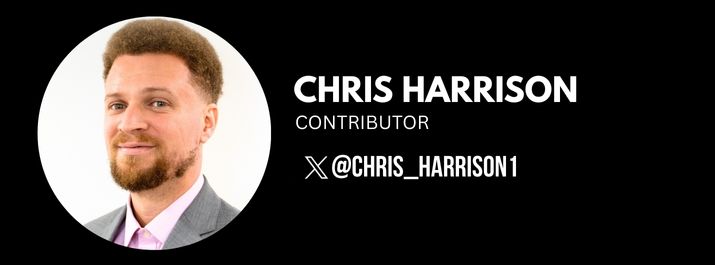In his The Wizard of the Kremlin review, Chris Harrison says it’s “sharply-written”, but “its weaknesses ultimately hold it back from greatness.”
Olivier Assayas’ adaptation of the novel The Wizard of the Kremlin is an uneven but generally good film bolstered by some excellent individual performances from a star-studded cast and some occasionally sharp dialogue.
Paul Dano is in the lead role as Vadim Baranov (based loosely on real-life Russian politician Vladislav Surkov), a former theater student who winds up becoming one of Vladimir Putin’s right-hand men thanks to his own creativity and cunning, always two steps ahead, and whose ever-increasing proximity to power slowly corrupts him and his once-lofty ideals for a new Russia. He’s a man who cares more about using his talents than what he uses them for or who he hurts.
His life story is framed by a conversation with a curious writer fascinated with Russian politics and history (Jeffrey Wright), who mostly serves as a vehicle for Baranov to flaunt his own cleverness. The film follows Baranov through the decades, beginning with his time at arts school in the 80’s and wrapping up in the 2010’s, as he helps mold Russia into what it is today.
Those early scenes in the 80’s miss the mark, despite a solid performance from Dano, who does a fine job embodying Baranov’s calm, calculating manner of speech, but the film really picks up in the 90’s, when Baranov, now working for Boris Berezovsky (played by a very charismatic Will Keen), enters the orbit of Putin (Jude Law), who they seek to propel to the Russian presidency, ushering in an era of Russian politics wildly different from the Boris Yeltsin administration.
The film’s at its best when Putin is onscreen, and Law is magnetic in the role, puffing out his lower lip in disgust at those he despises as he and Baranov build a party platform around the strongman autocrat. Law’s performance goes beyond mere imitation – he, like many of the top-billed cast, does not put on a Russian accent either – and he successfully captures what makes Putin, ever disinterested in niceties and gladhanding, so distinctly him. The film finds some levity not only in Putin’s lack of charm, but in him not seeing any value in it at all.
Ever the thinker, Baranov’s tête-à-têtes with Putin and Berezovsky are entertaining, as is the push and pull of their political ideologies. Everyone in this film is looking to maximize their power and influence, but their approaches – Berezovsky is a pragmatist while Putin is dogmatic – differ, with some of their clashes among the high points of the film.
The romance between Baranov and the luxury-obsessed Ksenia (Alicia VIkander) never quite feels believable, even as it spans decades and serves as the only real emotional outlet for the largely disaffected Baranov. Much like Baranov himself, Wizard is at its weakest during those tender, personal moments, and at its best when political titans are deciding the future of democracy (a 2010’s scene about online bots and misinformation is particularly prescient).
In its best scenes, the film is a sharply-written, and often surprisingly funny, look at power in one of the most unique nation-states in the world, but with its glaring weaknesses it stops short of being great.
Related content:





